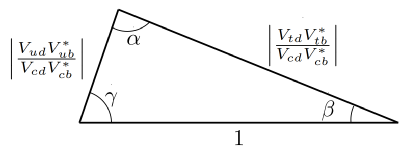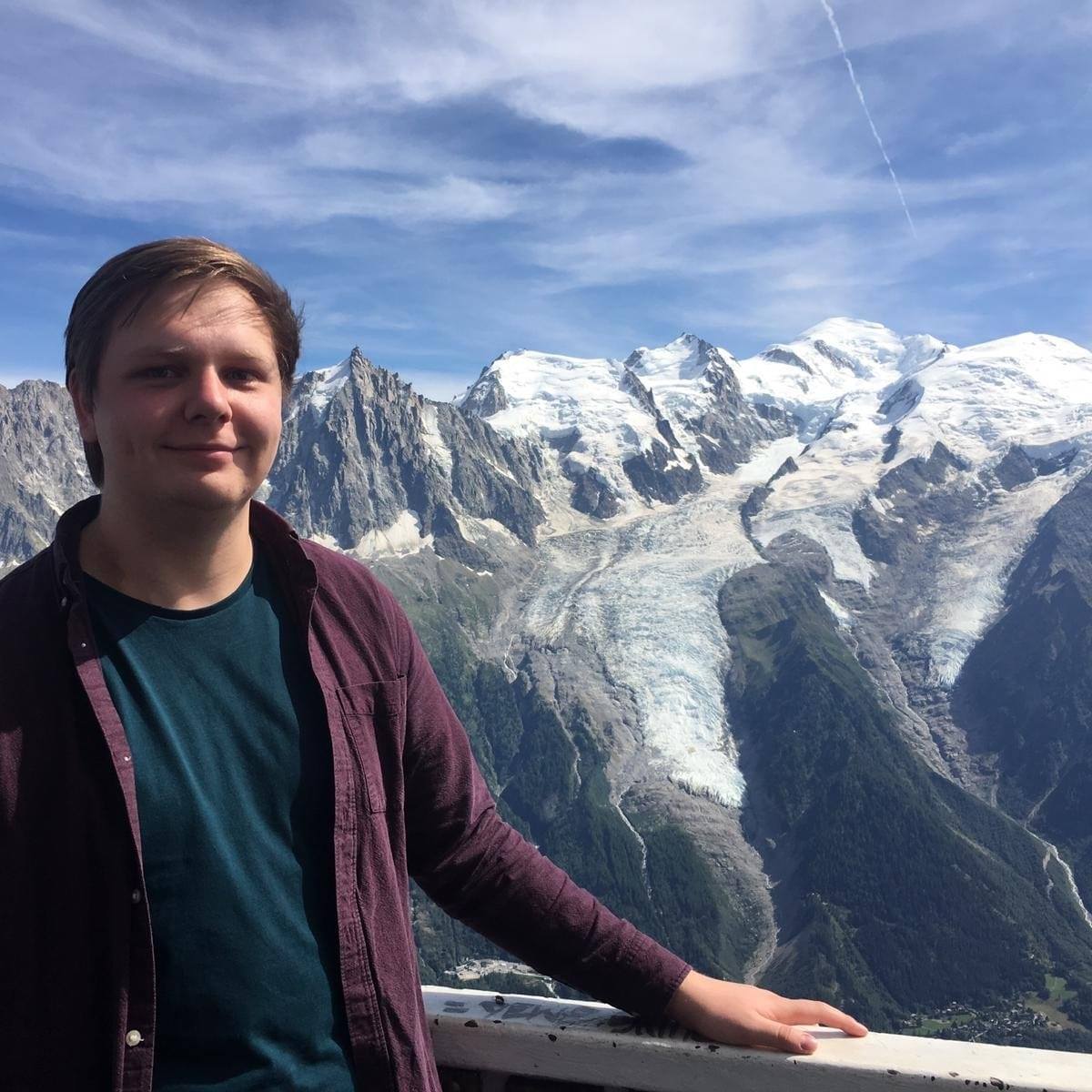Aidan Wiederhold
I am a PhD student in the LHCb Group of the Warwick Elementary Particle Physics Group. Before my PhD I studied here as an undergraduate student and acquired a First Class BSc MMathPhys.
Postgraduate Research
One of the goals of modern particle physics is to determine why the Universe consists primarily of matter rather than equal amounts of matter and antimatter. One phenomenon that contributes to this is CP-violation in quarks, this can be studied by measuring the Unitarity Triangle defined by elements of the CKM matrix.

The angle has negligible theoretical uncertainty and can be used as a benchmark of the Standard Model to probe for effects of new physics. It can be measured using B-meson decay data from the LHCb Experiment of the LHC at CERN.
The focus of my research is to measure using a double Dalitz analysis of
decays. This is a new measurement and will utilise the full Run 1 and Run 2 dataset of LHCb, it will increase the sensitivity of LHCb's
combination and take us one step closer to a sub
measurement of
. It could enhance/resolve tension between measurements of
using
or
decays, an enhancement of this tension may provide a sign of previously unknown physics. Similarly, increased sensitivity of the LHCb
combination could enhance the tension with indirect measurements of
, another possible way of revealing unknown physics.
Undergraduate Research
During the final year of my undergraduate degree I worked with Dr Matt Kenzie and Nick Latham on a study of combinations of Beauty and Charm data from LHCb and their sensitivity to . This combined the LHCb BPGGSZ, Double Dalitz and Charm Bin-Flip analyses from LHCb and the strong-phase measurements from the CLEO-c and BES-III experiments to estimate how each of these analyses affected sensitivity to
and Charm parameters as the LHCb dataset grew with subsequent runs of the LHC.
One particular finding was that the double Dalitz analysis would significantly improve the sensitivity to , with the magnitude of improvement growing with each run of the LHC. This motivates the use of the analysis now so that its benefits can be utilised as soon as possible.
In addition to my final year project I also spent two summers as a Summer Research Student. In 2018 I worked with Professor Paul Harrison at Warwick on parameterising the Quark Mass Matrices and in 2019 I worked with Dr Bora Isildak at CERN on an artificial neural network method for histogram deconvolution of particle physics data.
Teaching
For the academic year 2021-2022 I will be working as a first-year physics lab demonstrator.
Additional Responsibilities
Supervisor:
Contact Details:
Office: P4.50 (Department of Physics, University of Warwick)
E-Mail: a.wiederhold@warwick.ac.uk

